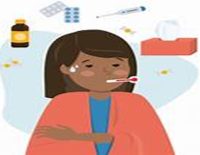If consuming alcohol, never use these medicines with drinks

Irrespective of your nature of drinking whether occasionally or regularly, you must know the alcohol can interact with any medications you take and you will be on higher risk of adverse impact of these medications.
The combination of alcohol and certain medications can cause negative interactions, adverse reactions, and even overdose and death. This can happen with prescription medications, over-the-counter (OTC) medications, and even supplements or herbal remedies.
Taking medications while drinking alcohol can be unpredictable. Certain medications with alcohol can cause a number of symptoms like Nausea and vomiting, Fainting, Loss of coordination, Internal Bleeding, Breathing problems, Heart complications and Damage to the Liver. Beware that some medications, like laxatives and cough syrups, may contain some alcohol themselves, too.
Before using the medicines, read on to learn which medications not to mix with alcohol. And remember, always read the medication label thoroughly.
Depression and Anxiety Medications
Combining alcohol with antidepressant or anxiety medications increases the risk for an overdose and can make you feel more depressed. You can also experience drowsiness, dizziness, impaired motor control and coordination, difficulty breathing, strange behaviors, and heart or liver damage. Some of these medications can also make the effects of alcohol more extreme.
Diabetes Medications
Adding alcohol to the Diabetes Medications can lead to dangerously low blood suger levels. In addition, there is a risk of the following symptoms like, Sudden changes in blood pressure, Rapid heartbeat, Weakness, Headache and Nausea and vomiting.
Cold or Allergy Medications
Millions of people take medications for colds, allergies, and the flu each year, which are known to cause drowsiness and dizziness. Alcohol also does that, so taking them both together can amplify those side effects, causing impaired judgment and coordination and a slow reaction time. The combination of alcohol and cold or allergy medicine can put you at an increased risk for overdose.
Blood Pressure Medications
Medications used to treat hypertension can react badly with alcohol, causing dizziness and fainting, extreme sleepiness, and arrhythmias, or other heart problems.
Sleep Aids
These types of medications should never be used when you have alcohol in your system. Sleep aids and alcohol both have sedating effects and can amplify each other. Side effects of mixing alcohol with sleep aids may include difficulty breathing, memory problems, strange behavior, and impaired motor control.
Pain Medications
Whether the pain medication is OTC or a prescription drug, you should talk to your healthcare provider before drinking alcohol. Combining alcohol with any type of pain medication can cause dangerous side effects.
Combining alcohol with strong pain medications for severe pain, like opioids, can cause drowsiness and dizziness, difficulty breathing, memory problems, and puts you at an increased risk for an overdose.
Heartburn and Nausea Medications
Any medication that can help calm your stomach from heartburn and nausea, including motion sickness, can interact negatively with alcohol. Mixing these with alcohol can cause a rapid heartbeat and a sudden change in blood pressure. It also puts you at an increased risk for overdose and can make the alcohol effects stronger.








Comments